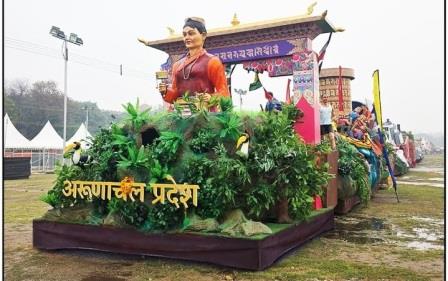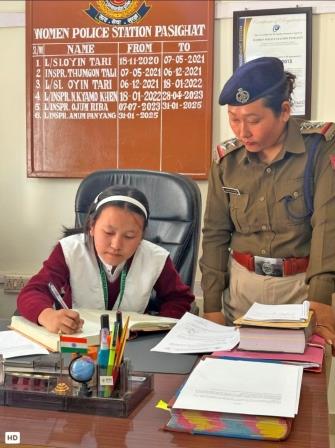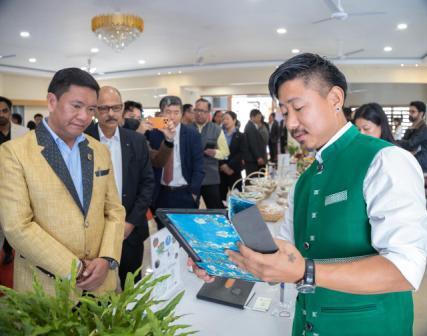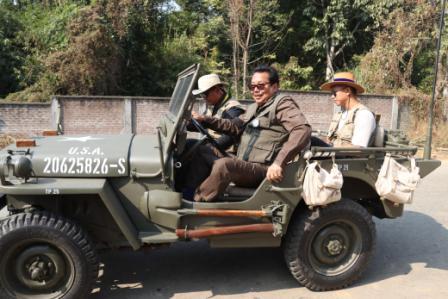-
 Arunachal tableau on R-Day spotlights state’s emergence as Adventure Capital…
Arunachal tableau on R-Day spotlights state’s emergence as Adventure Capital…
-
Etalin marks National Voters’ Day, encourages youth participation in democracy
-
Sona reviews PMGSY, VVP projects in Itanagar Circle
-
Lok Bhavan celebrates UP Diwas
-
 KGBV student leads WPS Pasighat on National Girl Child Day
KGBV student leads WPS Pasighat on National Girl Child Day
-
Meritorious students felicitated on National Girl Child Day
-
Awareness on POCSO held as part of National Girl Child…
-
Anini certifies 79 Nature Guides on National Tourism Day
-
 Startup success stories reflect potential of state’s youth: CM
Startup success stories reflect potential of state’s youth: CM
-
 Mein participates in vintage Willys Jeep Rally, inaugurates World War…
Mein participates in vintage Willys Jeep Rally, inaugurates World War…
With the new government at New Delhi taking charge of the corridors of power, all eyes are now on the maiden session of 17th Lok Sabha which is set to begin on June 17 and continue till July 26. At this juncture a question that is sure to arise in the mind of any Indian voter who has contributed in the formation of this Lok Sabha will be whether the parliamentary proceedings in the coming five years will have the same old ingredients of pandemonium and disruption, or is it going to be something exemplarily disciplined.
The question is a pertinent one since disruption has become a pervasive feature of the functioning of Indian Parliament and are much talked in public sphere with considerable reprimand. From throwing paper balls to running straight to the well of the house with placards displaying protest slogans and Speaker trying to restore tranquility, the Indian people have had a taste of all through the TV screens taking them live. A deep feeling of disgust is natural, since not only are disruptions a waste of valuable time of the hallowed institution of the world’s largest democracy, it’s also something that contributes significantly negative to its image.
The 16th Lok Sabha which began on June 4, 2014 and had its last session on February 13, 2019 worked for a total number of 1,615 hours which is although 20% more than 15thLok Sabha, is 40% lower than the average of all full term Lok Sabhas which is 2,689 hours. The number of sitting days were also on a general decline in this edition since it sat for 331 days, lower than the overall average of the full terms of 468 days. The lower house also lost 16% of its scheduled time to disruptions, even if better than 37% of 15th LS, but worse than the 14th when it was 13%. But the budget session of 2018 will be remembered as one of the least productive Lok Sabha in recent memory whenwhere four out of five hours stipulated for business were lost due to interruptions causing huge loss to the exchequer.
But the electorate send their representatives to this temple of democracy with the hope that he or she would discuss and debate bills and enact the best laws for the country. They also expect that opposite views and objectives, which are quite natural in a democracy are to be debated with fine oratory skills and not necessarily culminate into chaos and frenzy.
The members of the current parliament will be thanked generously if an ideal paradigm is created which would inspire the posterity to replicate and thereby strengthen the Indian democracy in the long run.

Kenter Joya Riba
(Managing Editor)She is a graduate in Science with post graduation in Sociology from University of Pune. She has been in the media industry for nearly a decade. Before turning to print business, she has been associated with radio and television.
Email: kenterjoyaz@easternsentinel.in / editoreasternsentinel@gmail.com
Phone: 0360-2212313

